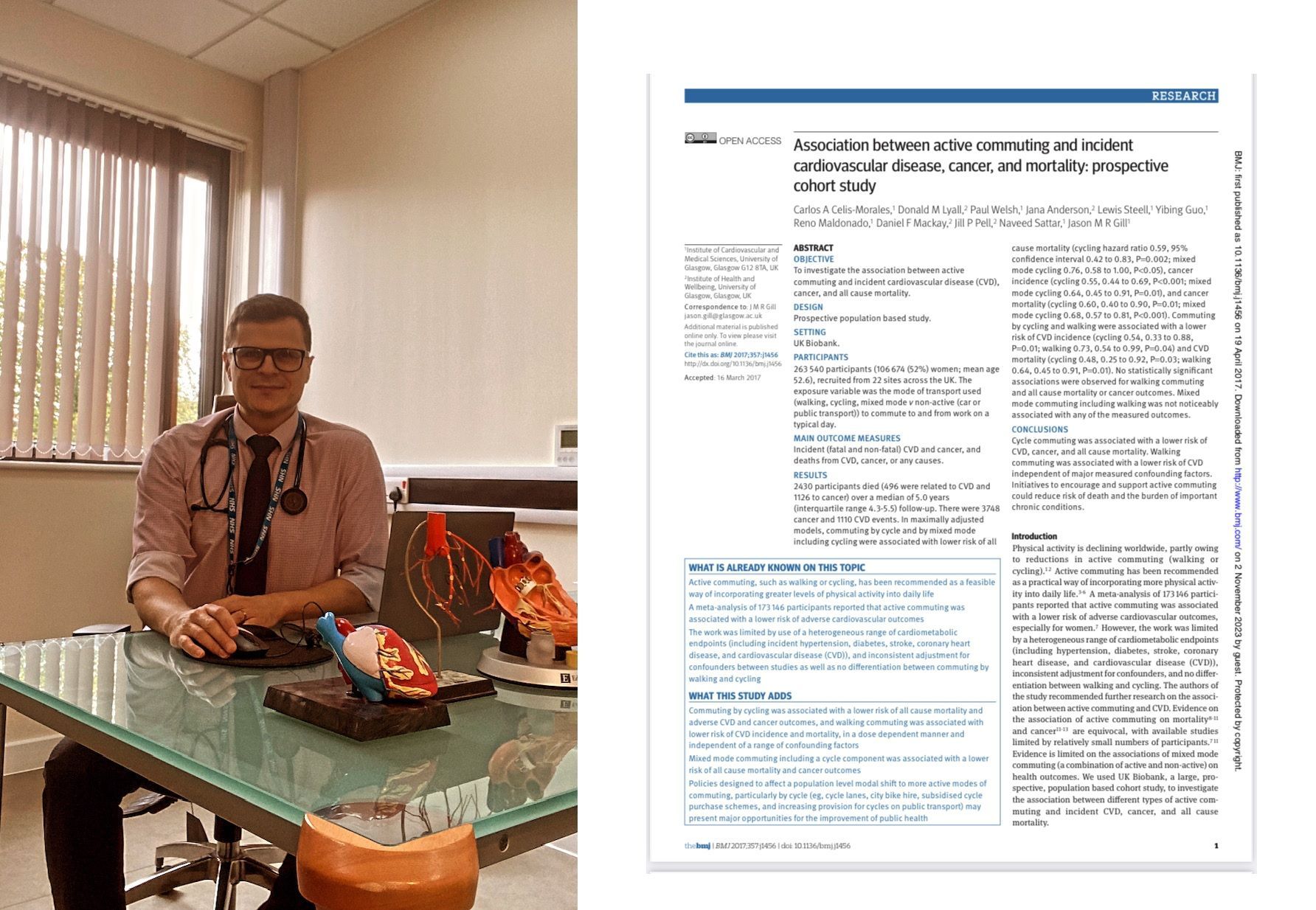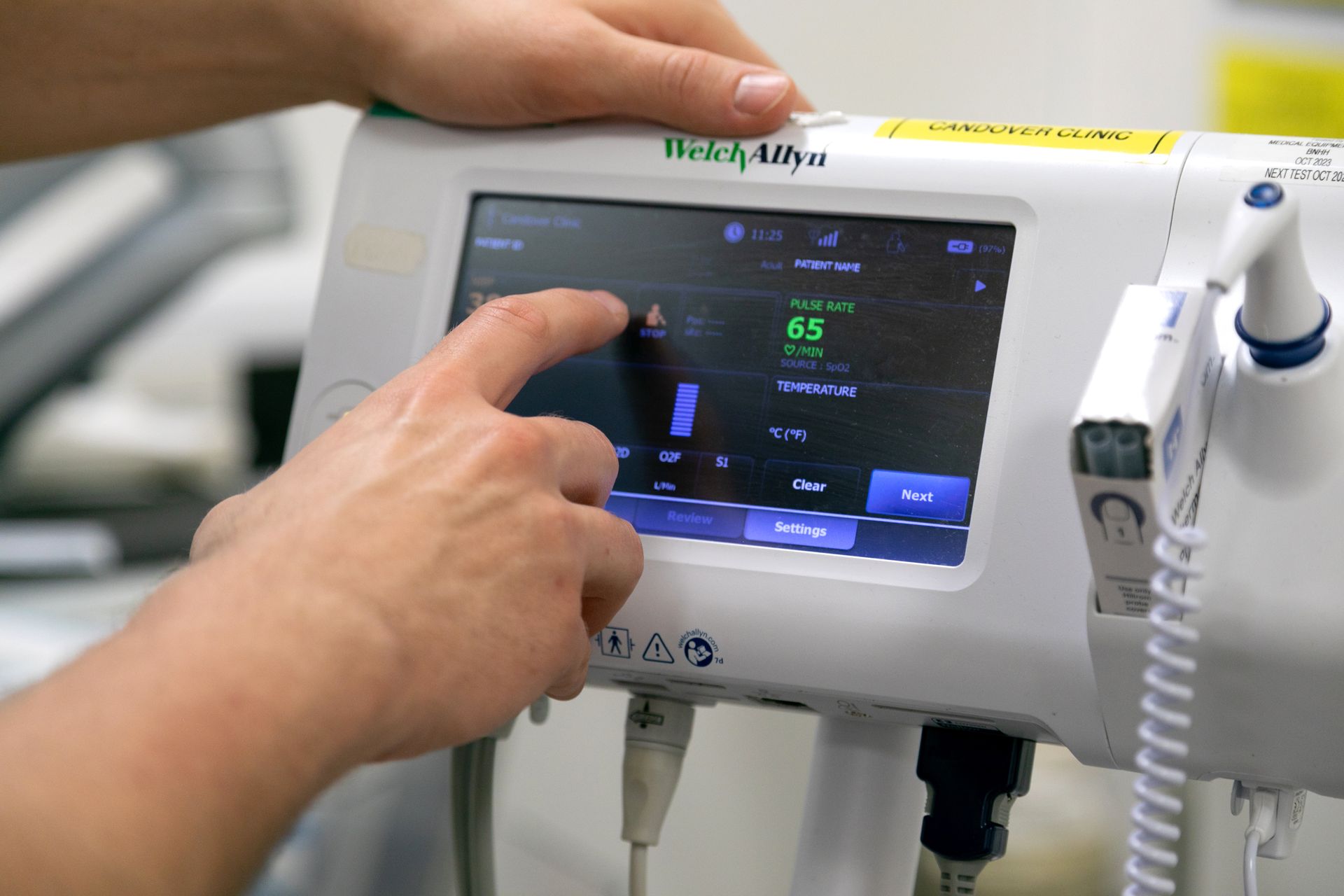Can CYCLING to work reduce Your risk of Heart Disease and Dying?

According to the study above, published in the British Medical Journal in 2017, the answer is yes.
- It was a large prospective study, which included over 250 000 participants, of whom 52% were female and the mean age was just over 52 years.
- Cycling and walking as a mode of commuting were associated with a lower risk of heart disease and risk of dying from heart related causes.
- Interestingly commuting by cycling was also linked to lower risk of cancer, dying from cancer and also dying from any cause.
- The authors concluded: 'Cycle commuting was associated with a lower risk of cardiovascular disease, cancer and all cause mortality. Walking commuting was associated with a lower risk of cardiovascular disease independent of major measured confounding factors. Initiatives to encourage and support active commuting could reduce risk of death and the burden of important chronic conditions.'
Link to the article below:
https://www.bmj.com/content/357/bmj.j1456
-----------------------------------------------
📸 at Candover Clinic in Basingstoke, where Dr Bart Olechowski sees Private Patients for Cardiology Consultations and Investigations (ECGs, Echocardiograms and Tapes), weekly on Thursdays.
============================================================
In the pursuit of a healthy lifestyle, the importance of regular exercise cannot be overstated. Among the myriad of physical activities available, cycling stands out as a versatile and enjoyable option that not only benefits overall fitness but also plays a pivotal role in promoting heart health. Dr. Bart Olechowski, a respected Consultant Cardiologist with affiliations at Winchester Sarum Road Hospital and Candover Clinic in Basingstoke, underscores the positive impact of cycling on cardiovascular well-being.
The Heart of the Matter:
At the core of the benefits lies the cardiovascular system, the intricate network responsible for pumping blood throughout the body. Cycling, being an aerobic exercise, engages this system in a dynamic manner, leading to a cascade of positive effects on heart health. Dr. Olechowski emphasizes that regular cycling improves the efficiency of the heart by enhancing its ability to pump blood, which, in turn, strengthens the heart muscle.
One notable advantage is the reduction of risk factors associated with heart disease. Cycling helps in managing blood pressure levels, a crucial factor in preventing cardiovascular issues. The rhythmic pedaling motion not only contributes to lower resting heart rates but also promotes healthy blood vessel function, reducing the strain on the heart.
Furthermore, cycling aids in weight management, another key factor in maintaining a healthy heart. Dr. Olechowski often highlights the connection between obesity and heart diseases, emphasizing that cycling is an effective means of burning calories and shedding excess weight. As a low-impact exercise, cycling provides a joint-friendly alternative to other forms of physical activity, making it accessible to a wide range of individuals.
The Role of Cycling in Preventive Cardiology:
Dr. Bart Olechowski, as a private cardiologist, frequently encounters patients seeking preventive measures against heart diseases. In his practice, he advocates for cycling as an integral component of preventive cardiology. The positive impact of cycling extends beyond the physical realm, encompassing mental well-being. Stress and anxiety, common contributors to heart issues, are mitigated through the meditative and mood-enhancing aspects of cycling.
Moreover, cycling contributes to the regulation of cholesterol levels. The aerobic nature of this exercise helps increase high-density lipoprotein (HDL) cholesterol, commonly known as the "good" cholesterol, while reducing low-density lipoprotein (LDL) cholesterol, the "bad" cholesterol. Dr. Olechowski often emphasizes the importance of maintaining a healthy lipid profile in preventing atherosclerosis and related cardiovascular conditions.
In conclusion, the benefits of cycling on heart health are vast and well-supported by medical experts such as Dr. Bart Olechowski. The cardiovascular advantages extend from improved heart efficiency to the management of risk factors like blood pressure, weight, and cholesterol levels. As a private cardiologist who sees patients at Winchester Sarum Road Hospital and Candover Clinic in Basingstoke, Dr. Olechowski integrates cycling into his recommendations for preventive cardiology, recognizing its holistic impact on both physical and mental well-being.
It is worth noting that the versatility of cycling makes it a sustainable and enjoyable exercise for people of all ages and fitness levels. Whether cycling for leisure, commuting, or participating in organized rides, individuals can tailor this activity to their preferences and gradually build it into their routine.
Concluding Remarks:
In the realm of preventive cardiology, cycling emerges as a prescription for a healthier heart, endorsed by medical professionals like Dr Bart Olechowski. The evidence supporting the positive impact of cycling on heart health is not only robust but also translates into practical and enjoyable lifestyle choices. So, whether you're navigating the scenic routes or commuting to work, remember that every turn of the pedal is a step towards a stronger and healthier heart.











